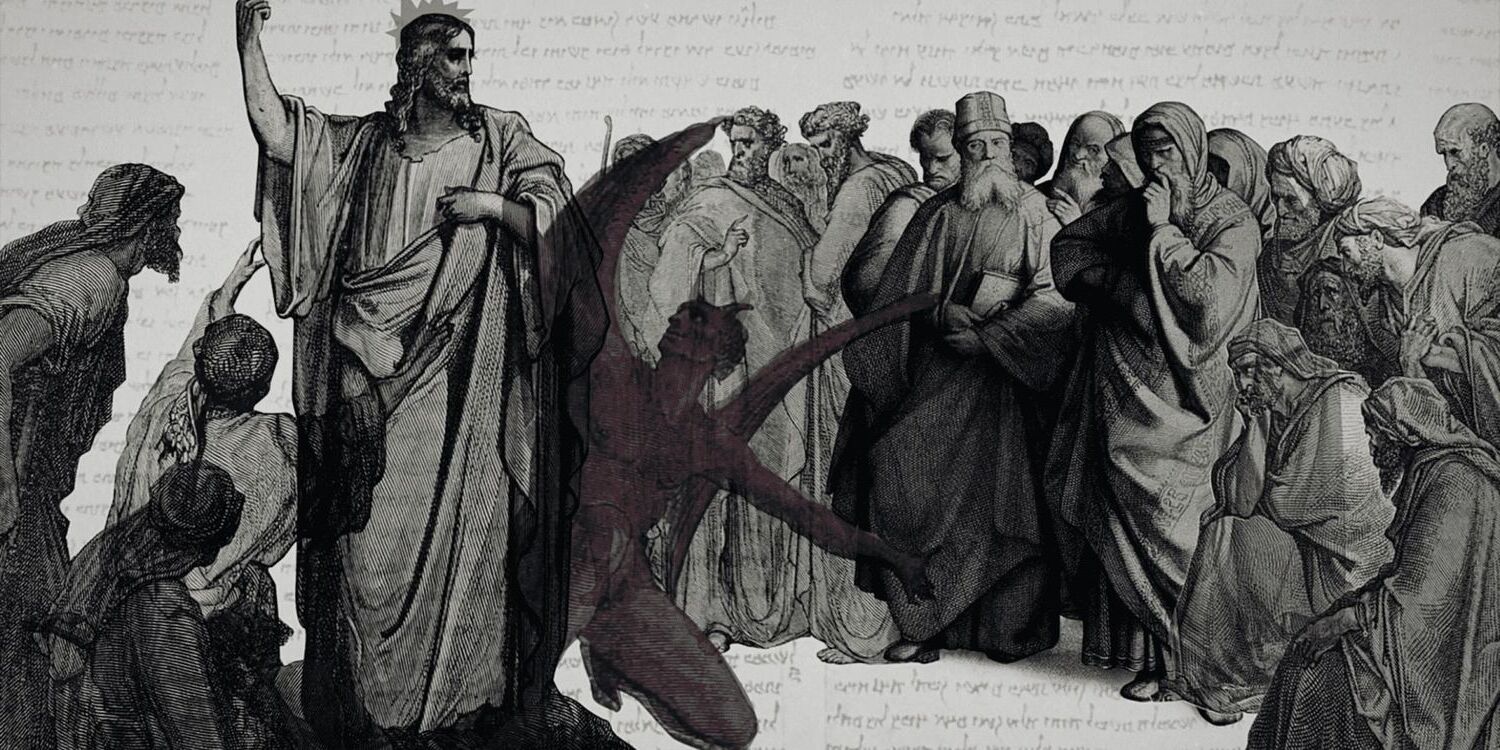
Who is Beelzebub? Often referred to as the "Lord of the Flies," Beelzebub is a figure steeped in mystery and intrigue. His name originates from the Hebrew "Baal Zebub," meaning "Lord of the Flies." This name appears in the Bible, specifically in 2 Kings 1:2-3, where King Ahaziah seeks advice from this deity. Over time, Beelzebub has become synonymous with the devil or Satan in Christian theology. His association with flies symbolizes decay, corruption, and evil. Beyond religious texts, Beelzebub has influenced literature, art, and popular culture, making him a multifaceted character worth exploring.
Origins and Biblical References
Beelzebub's story begins in ancient texts and religious scriptures. His name and role have evolved over centuries, making him a fascinating figure in theology and culture.
-
Origin in Hebrew Scripture: Beelzebub's name comes from the Hebrew phrase "Baal Zebub," meaning "Lord of the Flies." This name appears in the Bible in 2 Kings 1:2-3, where King Ahaziah seeks advice from Baal Zebub, prompting God to send Elijah to confront him.
-
Association with the Devil: In Christian tradition, Beelzebub is often seen as one of the seven princes of hell, closely linked to the devil. This connection likely stems from his biblical reference as a false god.
-
Symbolism of Flies: "Lord of the Flies" symbolizes decay, corruption, and evil. Flies, often seen as pests spreading disease, make a fitting symbol for a malevolent figure.
-
Historical Context: Baal Zebub was worshipped in Ekron, a Philistine city. The Israelites viewed this worship as idolatrous.
-
Elijah's Confrontation: Elijah's biblical confrontation with King Ahaziah over seeking Baal Zebub's advice highlights the conflict between worshipping false gods and the one true God.
-
Ezekiel's Prophecy: In Ezekiel 21:31, the prophet mentions Baal Zebub as one of the idols destined for destruction by God.
-
New Testament References: While not explicitly named, Beelzebub is metaphorically referred to as Satan or evil spirits in Matthew 12:24-27, Mark 3:22-23, and Luke 11:15-18.
Cultural and Literary Significance
Beelzebub's influence extends beyond religious texts, impacting literature, art, and popular culture. His symbolism and character have been explored in various creative works.
-
Literary and Cultural Significance: Beelzebub appears in William Golding's "Lord of the Flies," symbolizing humanity's primal, savage nature.
-
Artistic Depictions: Throughout history, Beelzebub has been depicted as a grotesque figure surrounded by flies, emphasizing his association with decay and corruption.
-
Influence on Popular Culture: Beelzebub has appeared in films, music, and literature as a symbol of evil or malevolence.
-
Occultism and Demonology: In occultism and demonology, Beelzebub is sometimes referred to as a powerful demon or prince of hell, associated with the underworld and darkness.
-
Witchcraft and Sorcery: Some traditions of witchcraft and sorcery invoke or fear Beelzebub due to his association with dark magic and malevolent spirits.
Historical Figures and Events
Beelzebub's story intersects with historical figures and events, providing context for his role in religious narratives.
-
Historical Figures: King Ahaziah, who sought Baal Zebub's advice, exemplifies the threat of false god worship to Israelite monotheism.
-
Biblical Prophecies: Prophecies like those in Ezekiel 21:31 indicate that idol worship, including Baal Zebub, will be punished by God.
-
Christian Theology: Beelzebub represents the ultimate enemy of God and humanity, symbolizing pure evil in Christian theology.
Symbolism and Psychological Interpretation
Beelzebub's character serves as a rich source of symbolism and psychological interpretation, reflecting deeper aspects of human nature and societal norms.
-
Symbolism in Literature: In literature, Beelzebub often symbolizes chaos and disorder, representing the darker aspects of human nature.
-
Psychological Interpretation: Psychologically, Beelzebub can be seen as a manifestation of the id, representing primal instincts and desires that conflict with societal norms.
-
Cultural Impact: Beelzebub's cultural impact extends beyond religious contexts, influencing art, literature, and popular culture significantly.
Artistic and Occult Representations
Beelzebub's image has been shaped by artistic and occult traditions, further cementing his role as a symbol of evil and decay.
-
Artistic Representations: Artistic depictions often show Beelzebub as a grotesque figure surrounded by flies, emphasizing his association with decay.
-
Occult Practices: Occult practices sometimes invoke Beelzebub or fear him due to his association with dark magic and malevolent spirits.
-
Historical Figures and Events: Figures like King Ahaziah and events like Elijah's confrontation with Baal Zebub's priests provide historical context for the biblical account.
-
Biblical Prophecies and Fulfillment: Prophecies in Ezekiel 21:31 have been interpreted as fulfilled through the destruction of idols and the rise of monotheistic faiths.
-
Christian Theology and Doctrine: Christian theology views Beelzebub as a symbol of ultimate evil, reinforcing the idea that he represents the antithesis of God's will.
Beelzebub in Modern Culture
Beelzebub's presence in modern culture highlights his enduring influence and the ways in which his character has been adapted and reinterpreted.
-
Literary Works Featuring Beelzebub: Books like "The Exorcist" by William Peter Blatty feature Beelzebub as a powerful demon, solidifying his place in popular culture.
-
Artistic Representations in Popular Culture: Modern art often depicts Beelzebub as a grotesque figure surrounded by flies, emphasizing his association with decay and corruption.
-
Occult Practices and Invocations: Some occult traditions invoke Beelzebub or fear him due to his association with dark magic and malevolent spirits.
-
Historical Figures and Events Related to Beelzebub: Figures like King Ahaziah and events like Elijah's confrontation with Baal Zebub's priests provide historical context for the biblical account.
-
Biblical Prophecies and Fulfillment Related to Beelzebub: Prophecies in Ezekiel 21:31 have been interpreted as fulfilled through the destruction of idols and the rise of monotheistic faiths.
-
Christian Theology and Doctrine Related to Beelzebub: Christian theology views Beelzebub as a symbol of ultimate evil, reinforcing the idea that he represents the antithesis of God's will.
-
Symbolism in Literature and Art Related to Beelzebub: In literature and art, Beelzebub often symbolizes chaos, disorder, and the darker aspects of human nature.
-
Psychological Interpretation and Symbolism Related to Beelzebub: Psychologically, Beelzebub can be seen as a manifestation of the id, representing primal instincts and desires that conflict with societal norms.
-
Cultural Impact and Influence Related to Beelzebub: Beelzebub's cultural impact extends beyond religious contexts, influencing art, literature, and popular culture significantly.
-
Historical Context of Idolatry and Monotheism Related to Beelzebub: The historical context of idolatry and monotheism highlights the conflict between ancient polytheistic practices and the rise of monotheistic faiths, with Beelzebub representing one of the many false gods worshipped by ancient civilizations.
-
Elijah's Role in Confronting Idolatry Related to Beelzebub: Elijah's role in confronting King Ahaziah's request for advice from Baal Zebub underscores his importance in the biblical narrative as a prophet who stands against idolatry.
-
Ezekiel's Vision of Destruction Related to Beelzebub: Ezekiel's vision of the destruction of idols like Baal Zebub emphasizes God's wrath against false worship and his desire for monotheistic devotion.
-
New Testament Themes of Satan and Evil Spirits Related to Beelzebub: The New Testament themes of Satan and evil spirits often reference Beelzebub metaphorically, reinforcing the idea that he represents ultimate malevolence.
-
Literary Works Featuring Beelzebub Related to Popular Culture: Books like "The Exorcist" by William Peter Blatty feature Beelzebub as a powerful demon, solidifying his place in popular culture.
-
Artistic Representations of Beelzebub in Popular Culture: Modern art often depicts Beelzebub as a grotesque figure surrounded by flies, emphasizing his association with decay and corruption.
-
Occult Practices and Invocations Related to Beelzebub: Some occult traditions invoke Beelzebub or fear him due to his association with dark magic and malevolent spirits.
-
Historical Figures and Events Related to Beelzebub: Figures like King Ahaziah and events like Elijah's confrontation with Baal Zebub's priests provide historical context for the biblical account.
-
Biblical Prophecies and Fulfillment Related to Beelzebub: Prophecies in Ezekiel 21:31 have been interpreted as fulfilled through the destruction of idols and the rise of monotheistic faiths.
-
Christian Theology and Doctrine Related to Beelzebub: Christian theology views Beelzebub as a symbol of ultimate evil, reinforcing the idea that he represents the antithesis of God's will.
-
Symbolism in Literature and Art Related to Beelzebub: In literature and art, Beelzebub often symbolizes chaos, disorder, and the darker aspects of human nature.
-
Psychological Interpretation and Symbolism Related to Beelzebub: Psychologically, Beelzebub can be seen as a manifestation of the id, representing primal instincts and desires that conflict with societal norms.
-
Cultural Impact and Influence Related to Beelzebub: Beelzebub's cultural impact extends beyond religious contexts, influencing art, literature, and popular culture significantly.
-
Historical Context of Idolatry and Monotheism Related to Beelzebub: The historical context of idolatry and monotheism highlights the conflict between ancient polytheistic practices and the rise of monotheistic faiths, with Beelzebub representing one of the many false gods worshipped by ancient civilizations.
-
Elijah's Role in Confronting Idolatry Related to Beelzebub: Elijah's role in confronting King Ahaziah's request for advice from Baal Zebub underscores his importance in the biblical narrative as a prophet who stands against idolatry.
-
Ezekiel's Vision of Destruction Related to Beelzebub: Ezekiel's vision of the destruction of idols like Baal Zebub emphasizes God's wrath against false worship and his desire for monotheistic devotion.
-
New Testament Themes of Satan and Evil Spirits Related to Beelzebub: The New Testament themes of Satan and evil spirits often reference Beelzebub metaphorically, reinforcing the idea that he represents ultimate malevolence.
-
Literary Works Featuring Beelzebub Related to Popular Culture: Books like "The Exorcist" by William Peter Blatty feature Beelzebub as a powerful demon, solidifying his place in popular culture.
Beelzebub's Lasting Impact
Beelzebub, known as the "Lord of the Flies," has a rich history and deep cultural significance. Originating from Hebrew scripture, his name symbolizes decay and corruption. Over time, Beelzebub became associated with the devil in Christian theology, representing ultimate evil. His influence extends to literature, art, and popular culture, where he often symbolizes chaos and the darker aspects of human nature.
From biblical confrontations involving prophets like Elijah to his portrayal in modern works like "The Exorcist," Beelzebub's presence is undeniable. His depiction as a grotesque figure surrounded by flies underscores his connection to decay and malevolence. Whether viewed through the lens of religion, psychology, or art, Beelzebub remains a powerful symbol of evil and corruption. Understanding his origins and interpretations offers valuable insights into the cultural and religious contexts that shaped his enduring legacy.
Was this page helpful?
Our commitment to delivering trustworthy and engaging content is at the heart of what we do. Each fact on our site is contributed by real users like you, bringing a wealth of diverse insights and information. To ensure the highest standards of accuracy and reliability, our dedicated editors meticulously review each submission. This process guarantees that the facts we share are not only fascinating but also credible. Trust in our commitment to quality and authenticity as you explore and learn with us.


